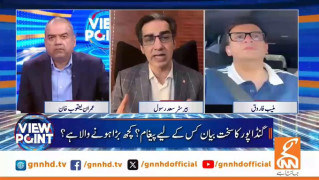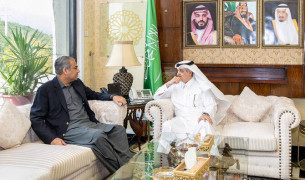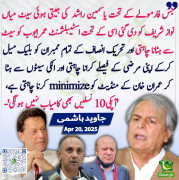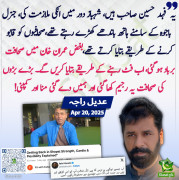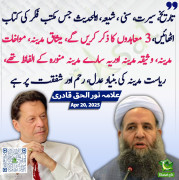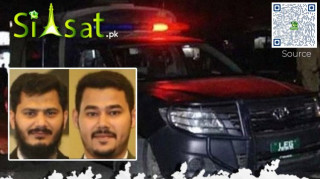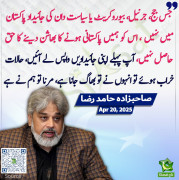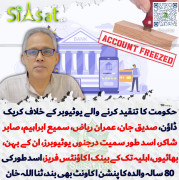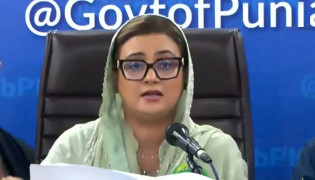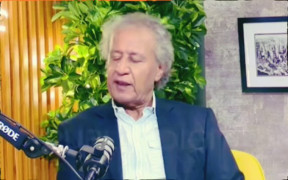sohnidhartie
Minister (2k+ posts)
In the history of Pakistan, the military has played a significant role, both revered and resented by the people. From important moments of nation-building to periods of authoritarian rule, the military's influence has been undeniable. However, as we approach another election cycle tainted by allegations of interference, it's time to reflect on how our perception of the military has changed.
Not so long ago, military personnel were considered a source of security and pride for many Pakistanis. The military was considered the nation's guardian, protecting its sovereignty and integrity. Its role in defending the country against external threats and maintaining internal stability was appreciated and celebrated. Generals were highly respected and their words carried weight in the corridors of power.
However, this once unwavering trust has gradually deteriorated, replaced by disillusionment and mistrust. The military's involvement in politics, coups, and periods of direct rule have left scars on the democratic fabric of the nation. Although these interventions were often framed as being in the national interest, they have frequently undermined the democratic process, stifled dissent, and perpetuated a vicious cycle of instability.
The recent imprisonment of Imran Khan, and allegations of electoral manipulation despite his party's electoral victory have only served to deepen the gulf between the military and the people of Pakistan. Once regarded as a champion of change, Imran Khan's downfall at the hands of the military has disillusioned many who had placed their hopes in him.
The military's interference in civilian affairs, whether overt or covert, undermines the very foundations of democracy. It stifles political pluralism, erodes trust in institutions, and reinforces a culture of impunity. While the military may claim to act in the best interest of the nation, it must remember that true national interest lies in upholding democratic principles and respecting the will of the people.
As we navigate the turbulent waters of Pakistani politics, it's crucial that we learn from history. Our relationship with the military must evolve beyond blind adulation or outright hostility. We must demand accountability, transparency, and a commitment to democratic norms. Only then can we genuinely reclaim the spirit of unity and progress that once characterized our nation.
Ultimately, our admiration for the military should not be unconditional, but based on a shared commitment to democracy, justice, and freedom. Only then can we truly honor the sacrifices of those who have served in its ranks and build a future worthy of the aspirations and dreams of all Pakistanis?
Not so long ago, military personnel were considered a source of security and pride for many Pakistanis. The military was considered the nation's guardian, protecting its sovereignty and integrity. Its role in defending the country against external threats and maintaining internal stability was appreciated and celebrated. Generals were highly respected and their words carried weight in the corridors of power.
However, this once unwavering trust has gradually deteriorated, replaced by disillusionment and mistrust. The military's involvement in politics, coups, and periods of direct rule have left scars on the democratic fabric of the nation. Although these interventions were often framed as being in the national interest, they have frequently undermined the democratic process, stifled dissent, and perpetuated a vicious cycle of instability.
The recent imprisonment of Imran Khan, and allegations of electoral manipulation despite his party's electoral victory have only served to deepen the gulf between the military and the people of Pakistan. Once regarded as a champion of change, Imran Khan's downfall at the hands of the military has disillusioned many who had placed their hopes in him.
The military's interference in civilian affairs, whether overt or covert, undermines the very foundations of democracy. It stifles political pluralism, erodes trust in institutions, and reinforces a culture of impunity. While the military may claim to act in the best interest of the nation, it must remember that true national interest lies in upholding democratic principles and respecting the will of the people.
As we navigate the turbulent waters of Pakistani politics, it's crucial that we learn from history. Our relationship with the military must evolve beyond blind adulation or outright hostility. We must demand accountability, transparency, and a commitment to democratic norms. Only then can we genuinely reclaim the spirit of unity and progress that once characterized our nation.
Ultimately, our admiration for the military should not be unconditional, but based on a shared commitment to democracy, justice, and freedom. Only then can we truly honor the sacrifices of those who have served in its ranks and build a future worthy of the aspirations and dreams of all Pakistanis?
- Featured Thumbs
- https://pbs.twimg.com/media/FxJqYzdaMAIygpW.jpg:large




